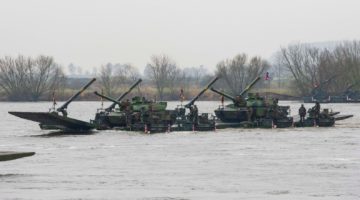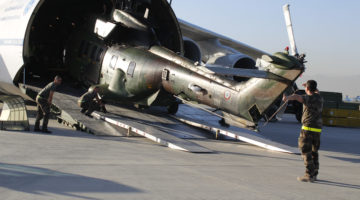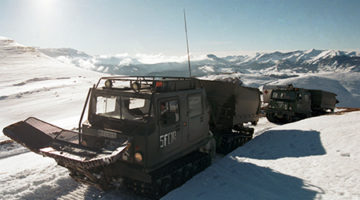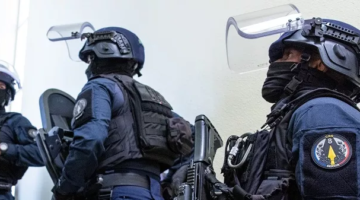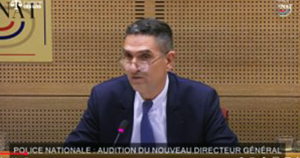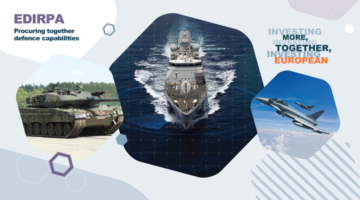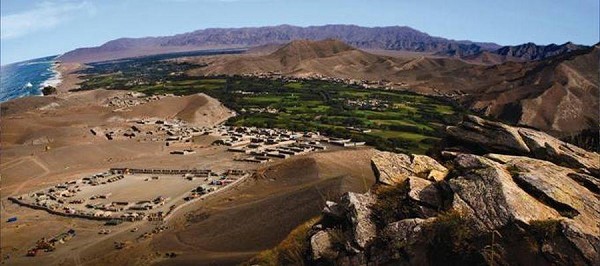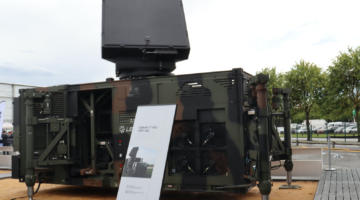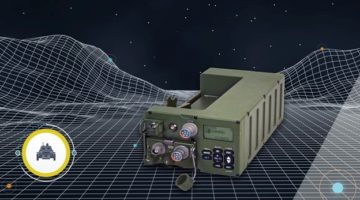Thales, maître d’oeuvre de l’étude, est associé à COGISYS, DCNS et ThalesRaytheonSystems. Le groupement apporte une connaissance complète du contexte opérationnel et technique pour les réseaux Armée de Terre (ASTRIDE), les réseaux de communication par satellites (SYRACUSE/COMSAT NG), les réseaux radio du combattant (CONTACT), les réseaux Air (SCCOA) et les réseaux navals (RIFAN), ainsi que toute son expérience des grands programmes du ministère de la Défense.
Thales a été retenu pour ses travaux antérieurs destinés à accompagner les réflexions des Armées sur le besoin opérationnel et toute son expertise dans les systèmes et réseaux de communication sécurisés et interarmes, les produits et les technologies de radiocommunications, ainsi que les systèmes de sécurité et de protection des infrastructures.
Le choix de Thales pour cette étude stratégique illustre son positionnement comme acteur de référence en matière de communications militaires et met en avant l’expertise du Groupe dans ce domaine. Fournissant l’ensemble des éléments de communications, des radios portatives pour soldat jusqu’aux communications par satellite, Thales est au coeur des problématiques de réseaux déployés par les forces armées et en a l’entière maîtrise.
The French defence procurement agency has awarded Thales a strategic study contract to define the overall system architecture for future network-centric operations by the French armed forces. The study will be conducted by the CATOD, the Defence procurement technical and operational analysis centre. Known as ETO AGORA, it will contribute significantly to the definition of all the theatre networks that will be deployed by French forces in 2020–25.
With the development of expeditionary missions and a growing operational need for effective in-theatre communications, commanders and deployed forces must be able to access and share information quickly in order to maintain information superiority. The armed forces need secure, resilient networks offering high data rates and valueadded services in order to fulfill their critical operational and public security roles.
The ETO AGORA study will build operational scenarios using the various networks to be deployed by 2020–25 to define an interconnection model that ensures effective delivery of future operational services, taking into account the progressive migration of these networks to IP technology.
The study will define how the services currently offered by the French Army’s ASTRIDE theatre network will be delivered in the future, and how theatre networks will remain coherent with the COMSAT NG and COMCEPT joint forces satcom networks and the RIFAN naval fleet network, while also taking into account the new technology standards for the timeframe under consideration, such as LTE / 4G in particular.
The objective for the armed forces is to have fully converged joint forces and NATO-interoperable communication networks in place by 2020–25.
The ETO AGORA study will provide the factual basis needed for the French Ministry of Defence to draw up roadmaps to achieve the following key objectives:
- Identify the necessary technologies for integration into the target architectures and the associated development plan (by analyzing priorities and related risks, depending on their level of maturity)
- Identify the advanced research, modelling, prototyping, operational demonstrators and change management needed to support the transition to new procedures so that the AGORA network-centric architecture and converged networks can be developed and delivered by 2020–25
- Identify the work needed under enhancements to current programmes or as part of new programmes in order to obtain the expected and achievable capability improvements.
Thales is the lead contractor for the study and will work with COGISYS, DCNS and ThalesRaytheonSystems. The consortium partners bring to the project a thorough understanding of the operational and technical context for the French Army’s networks (ASTRIDE), satellite communication networks (SYRACUSE/COMSAT NG), soldier radio networks (CONTACT), air command and control networks (SCCOA) and naval networks (RIFAN), as well as extensive experience in large-scale programmes for the French Ministry of Defence.
Thales was chosen to lead the study based on its previous projects helping Armies express their operational requirements, and its expertise in secure communication systems and networks for joint forces, radiocommunication products and technologies, as well as infrastructure security and protection systems.
Thales’s selection for this strategic study is a further endorsement of its leadership and know-how in the field of military communications. From hand-held tactical radios to satellite communication solutions, Thales plays a central role in meeting the network capability requirements of the armed forces and maintains a high level of expertise in all the key technologies involved.
Crédits photos © Thales

